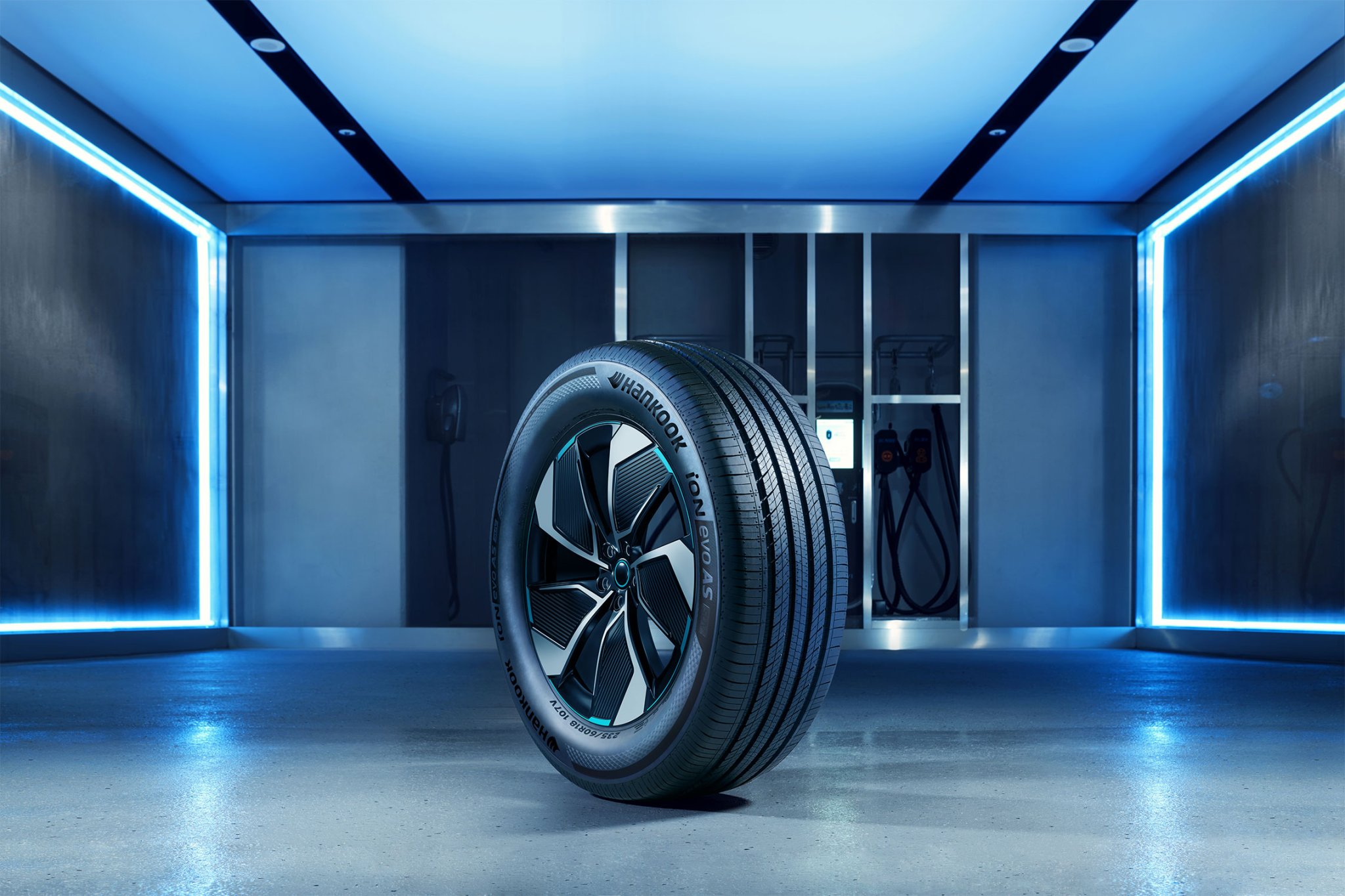

No matter what your personal feelings are about electric vehicles, nobody can deny the fact that adoption is accelerating. Recent data from BloombergNEF, a research and analysis company, shows EVs will make up over 50% of new car sales by 2030—a previous projection from just a few years ago was closer to 40%. With a market expanding so quickly, it’s no wonder automotive parts makers are jumping at the chance to pioneer EV-centric products.
While I’ve seen everything from floor mats to car jacks claiming to be EV-specific, at least one product requires a bit of a rethink to be optimized for the demands of electric vehicles; it’s one you may not have considered. Tires, maybe the most important components in determining a vehicle’s performance, regardless of its powertrain. Everything a car does, accelerating, braking, turning, ride quality, even its efficiency, are all impacted by its tires’ performance.
Most major tire manufacturers are now making EV-specific models. I recently got a look at Hankook’s new line of iON evo tires, specifically the iON evo AS. This seemed like an excellent opportunity to discuss specific requirements for EV tires and how manufacturers are designing tires to meet them.
EVs don’t necessarily require tires that perform differently than a standard ICE (Internal Combustion Engine) powered vehicle, but the specific attributes have to be optimized for an EV’s weight, torque, and efficiency requirements. Not an easy task when most buyers also demand sports sedan performance, all without impacting range.

EVs Are Worth The Weight
Electric vehicles are heavy, and I know what you’re thinking, “all cars have gotten bigger and heavier throughout the years.” And they have. A BMW e30 3-series weighs about 2,600 LB, while a 2022 BMW M340i comes in at 3,800 LB. But, that e30 used a 195/60-14 both front and rear, while in 2022, the rear tire of the M340i is a substantially larger 255/35-19. The electric equivalent of the 3-series, the i4 eDrive40, is roughly 25% heavier at 4,800 LB and, for the sake of efficiency, is equipped with a 225/50-18. My point here is that while all cars have gotten heavier, EVs are substantially heavier than like-sized ICE cars and often with smaller tires.
To handle the extra weight of EVs, Hankook designed the iON’s sidewalls to be stiffer in terms of lateral compliance for cornering forces while still allowing the tires to deflect enough to optimize the size and shape of the contact patch. Again, this isn’t atypical of how an ICE-powered vehicle’s tires are designed, but the iON tires are designed for the much higher loads of the EV. Compliance and response is the big tradeoff in the tire world.
All The Torque, All At Once
We all know some of the quickest cars on the road are now EVs, like the six-figure price-tagged Tesla Model S and Porsche Taycan. But, run-of-the-mill Hyundai and Kia electric hatchbacks are getting from 0 to 60 mph in less than five seconds.
Even with torque curves that look like diesel half-ton trucks from not that many years ago, ICE-powered vehicles have more lag off the line than ever. You can blame turbo-spool times, software tuning for emissions instead of response, or even confused automatic transmissions. No matter the reason, the instantaneous torque delivery of an electric motor means every green light feels more like a clutch-dump launch to your tires.
Manufacturers of EV-specific tires are looking to fight premature tire wear with innovation. Hankook, for example, has reformulated its rubber compound with more silica, which increases wet grip and lowers rolling resistance, but also improves tread life. The new EVolution Compound, along with a new curing process, has created a tire with wear characteristics more in line with EV owner’s expectations.

What You Don’t Hear
In ICE cars, roughly half the noise inside the car comes from the powertrain. Those sounds are missing in EVs, so road noise from the tires becomes far more apparent. This has led tire manufacturers to develop new methods to both reduce and attenuate the sounds that come from tread blocks interacting with the pavement and the air pushing between the blocks.
Hankook is employing a few different methods to quiet down the iON evo AS tires. The tread’s grooves are patterned instead of smooth to reduce air noise. The blocks themselves are sized and placed in a specific arrangement which creates a variety of tones instead of one consistent sound. For the noise that is made, the tires use sound-absorbing material inside the tire.
While many of the category-specific products you’ll find at your local auto parts store are mostly marketing, EV-specific tires do show some real advantages. Transitioning over to more environmentally electric vehicles will be mostly seamless for drivers in just a few years. Part of that effortlessness will be because of optimized components.
Sponsored by Hankook.